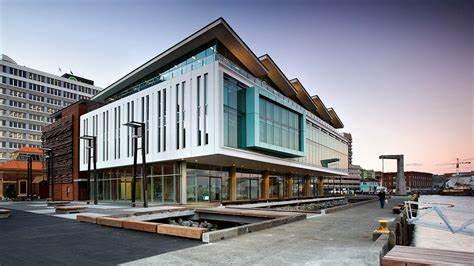Commercial building inspections are essential for buying, selling, leasing, or renting commercial space. They can uncover hidden defects or safety hazards that may cost a fortune to repair.
In addition, they can reveal regulatory compliance issues that could attract fines or legal disputes.
Identify Potential Issues
Commercial property inspections are designed to provide an unbiased, detailed analysis of the properties that business owners want to purchase or lease. This will give the interested parties a clear picture of their potential investment, including any challenges that may lie ahead.
Identifying problems early on, such as plumbing leaks, electrical issues, and environmental hazards like mold or asbestos, can save property owners from shouldering costly renovation expenses. Regular inspections can also ensure that buildings are up to code, which protects them against fines and other legal consequences.
Commercial building inspection results are documented in a final report that includes photographic proof and expert recommendations. The information can help the owner negotiate an appropriate price, determine the property’s value, and make informed decisions about their next steps.
Avoid Legal Issues
A commercial building inspection can help prevent potential legal issues. These may include violations of building codes and regulations, the safety of occupants, and the protection of the investment in the property. Inspectors can identify any such violations and report them to the proper authorities.
Avoiding these issues can save you money in the long run. For example, a problem like a roof leak that goes unnoticed can lead to serious water damage over time and require extensive repairs or even replacement. A professional inspector can catch this issue before it escalates and avoid the need for costly repairs.
Whether you’re buying or selling a commercial property, it’s important to schedule an inspection. This will reveal any underlying problems that could lead to a money pit and allow you to make an informed decision about your investment.
Avoid Hidden Costs
Commercial property owners tend to be more numbers-driven in their investments than homeowners, and they need to know the true condition of their investments. A commercial inspection gives them this confidence and peace of mind, allowing them to negotiate better deals and avoid costly surprises.
Moreover, a commercial building inspector can uncover issues that the untrained eye cannot. For instance, a roof in disrepair can lead to severe water damage and other problems, which must be identified early on.
This will help reduce the overall cost of repairs and maintenance and prevent a high-priority problem from becoming a massive issue in the future. This is one of the most significant benefits of a commercial inspection and is why many business owners invest in regular ones.
Prevent Damage
Commercial building inspections include a thorough examination of the structure’s structural integrity. They also inspect electrical wiring, plumbing fixtures, and fire safety systems. The inspector estimates the cost of repairs and other potential costs in their report, known as a Property Condition Report (PCR).
In addition to finding damage, problems, and safety hazards, regular inspections can help prevent the need for expensive repair work down the road. Even minor issues like faulty plumbing and tripping hazards can escalate into major problems, so it is important to identify and resolve them before they worsen.
Ensure Safety
When a commercial inspection is conducted, any issues found will be able to be addressed promptly. This will help reduce the likelihood of future legal claims against the property owner due to unsafe conditions for employees or customers. Additionally, the inspector will ensure that any building and zoning laws are met. This includes ensuring tenants have enough parking and that disabled access regulations are met. This is vitally important, as failure to comply with these requirements could result in expensive fines.
A thorough commercial inspection can provide valuable insights into a potential investment. It will enable property owners to make informed decisions and protect their investments. This will also ensure that future problems are caught before they become costly for the building occupants.

















